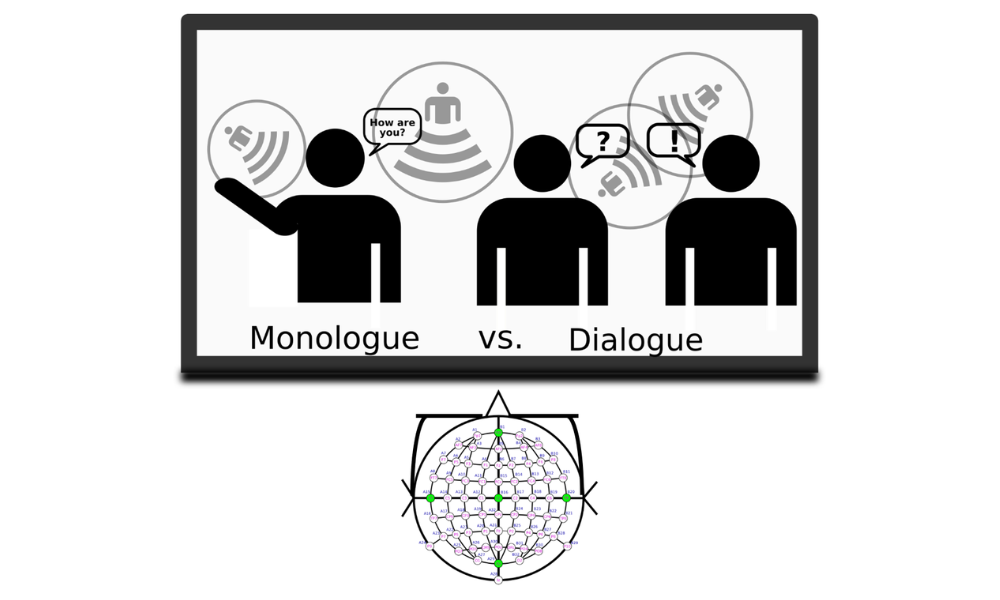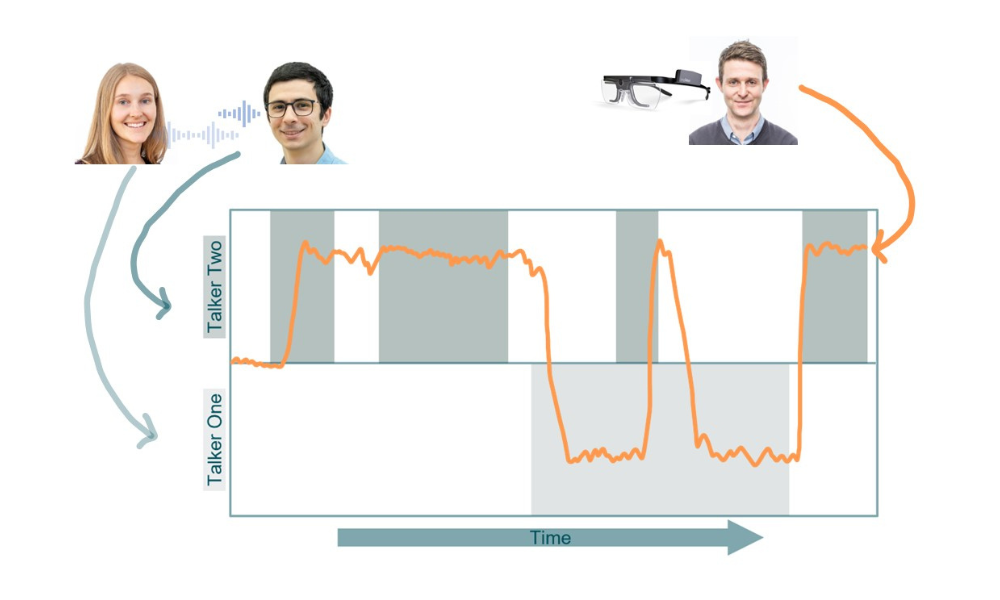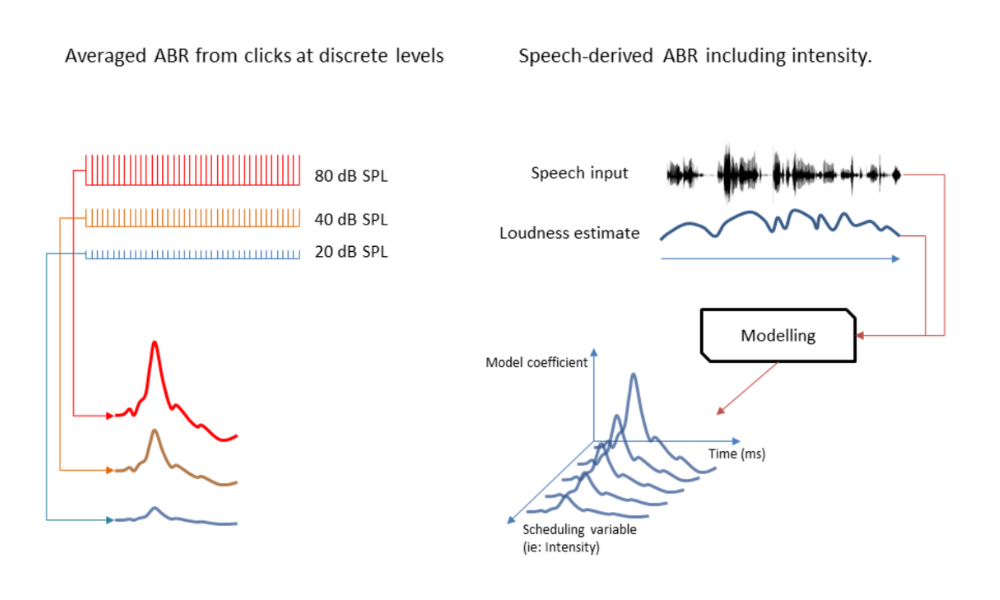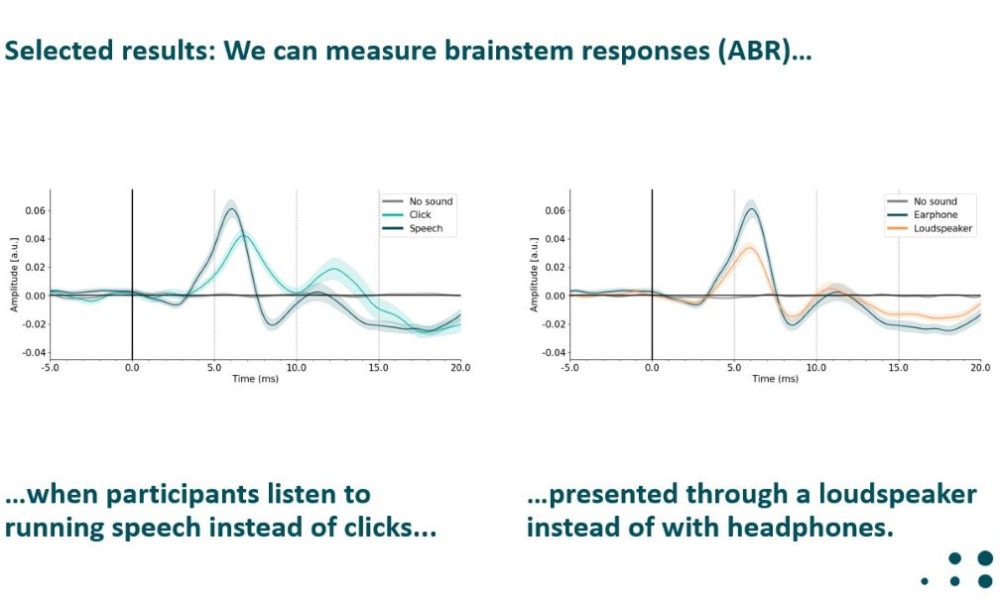Bilert, S. P., Hjortkjær, J., Alickovic, E., Shiell, M. M., Rotger-Griful, S., Zaar, J. (2021). Neural speech processing during selective listening in an audio-visual monologue vs. dialogue paradigm [Poster]. ARO 2021.
“I hope that the future will bring more convergence between engineering/technology fields with social sciences. I think we are biased to look towards technology for solutions to problems because it is more tangible than the messy complexity of human behaviour, relationships, and societies. But technology will only take us so far on its own!”
I am focused on two different topics right now – first, trying to understand how people use their eyes when they are following a realistic conversation, and second, developing measures that capture how well people use their hearing as an alarm system to alert them to relevant sounds in their surroundings (what we call “non-target hearing”). With both topics, the aim is to get a better understanding of hearing in the real-world, so that we can build technology that helps listeners when they are in complex sound environments.
I am focused on two different topics right now – first, trying to understand how people use their eyes when they are following a realistic conversation, and second, developing measures that capture how well people use their hearing as an alarm system to alert them to relevant sounds in their surroundings (what we call “non-target hearing”). With both topics, the aim is to get a better understanding of hearing in the real-world, so that we can build technology that helps listeners when they are in complex sound environments.
Like many auditory neuroscientists, I was drawn to study how the brain processes sound because of a love of music. It can be super exciting to study something as complex as the brain, but it is also a bit distant from the real-world – most basic research is decades away from having any direct applications (if ever!). So, after several years of that, I wanted to try using my skills and knowledge for something that had a more direct impact on society, and given my experience with the human auditory system, hearing care was an obvious choice.
Like many auditory neuroscientists, I was drawn to study how the brain processes sound because of a love of music. It can be super exciting to study something as complex as the brain, but it is also a bit distant from the real-world – most basic research is decades away from having any direct applications (if ever!). So, after several years of that, I wanted to try using my skills and knowledge for something that had a more direct impact on society, and given my experience with the human auditory system, hearing care was an obvious choice.
I was lucky – just when I had decided to start looking for ways to make my research more applied, I happened to see an announcement for a new position here. Since I wasn’t in the hearing care field, I didn’t know much about Eriksholm, but I had heard about it and met a few Eriksholm scientists at conferences in the past. I decided to take a chance even though the job wasn’t exactly my expertise. I am glad I did!
I was lucky – just when I had decided to start looking for ways to make my research more applied, I happened to see an announcement for a new position here. Since I wasn’t in the hearing care field, I didn’t know much about Eriksholm, but I had heard about it and met a few Eriksholm scientists at conferences in the past. I decided to take a chance even though the job wasn’t exactly my expertise. I am glad I did!
I have many brilliant colleagues and get a lot of daily motivation through my interactions with them. In the bigger picture, I like that my work has the potential to improve people’s lives.
I have many brilliant colleagues and get a lot of daily motivation through my interactions with them. In the bigger picture, I like that my work has the potential to improve people’s lives.
I hope that the research I contribute to leads directly to improvements in hearing care and the experiences of people with hearing impairment.
I hope that the research I contribute to leads directly to improvements in hearing care and the experiences of people with hearing impairment.
I’m a long-time yogi, so I am usually regularly on my mat. I am also a long-time expat, and so I spend a lot of time travelling to visit my diaspora community around Europe and Canada.
I’m a long-time yogi, so I am usually regularly on my mat. I am also a long-time expat, and so I spend a lot of time travelling to visit my diaspora community around Europe and Canada.
It is a cliché to say! The progress in machine learning and computing in the past decades has led to some astounding possibilities.
It is a cliché to say! The progress in machine learning and computing in the past decades has led to some astounding possibilities.
I hope that the future will bring more convergence between engineering/technology fields with social sciences. I think we are biased to look towards technology for solutions to problems because it is more tangible than the messy complexity of human behaviour, relationships, and societies. But technology will only take us so far on its own!
I hope that the future will bring more convergence between engineering/technology fields with social sciences. I think we are biased to look towards technology for solutions to problems because it is more tangible than the messy complexity of human behaviour, relationships, and societies. But technology will only take us so far on its own!
To see related publications, please follow this link and type in the scientist’s name in the free text search field. The result shows publications by this scientist during collaboration with Eriksholm Research Centre and/or with relevance to current work.









© 2024 Eriksholm – Designed by Aveo web&marketing